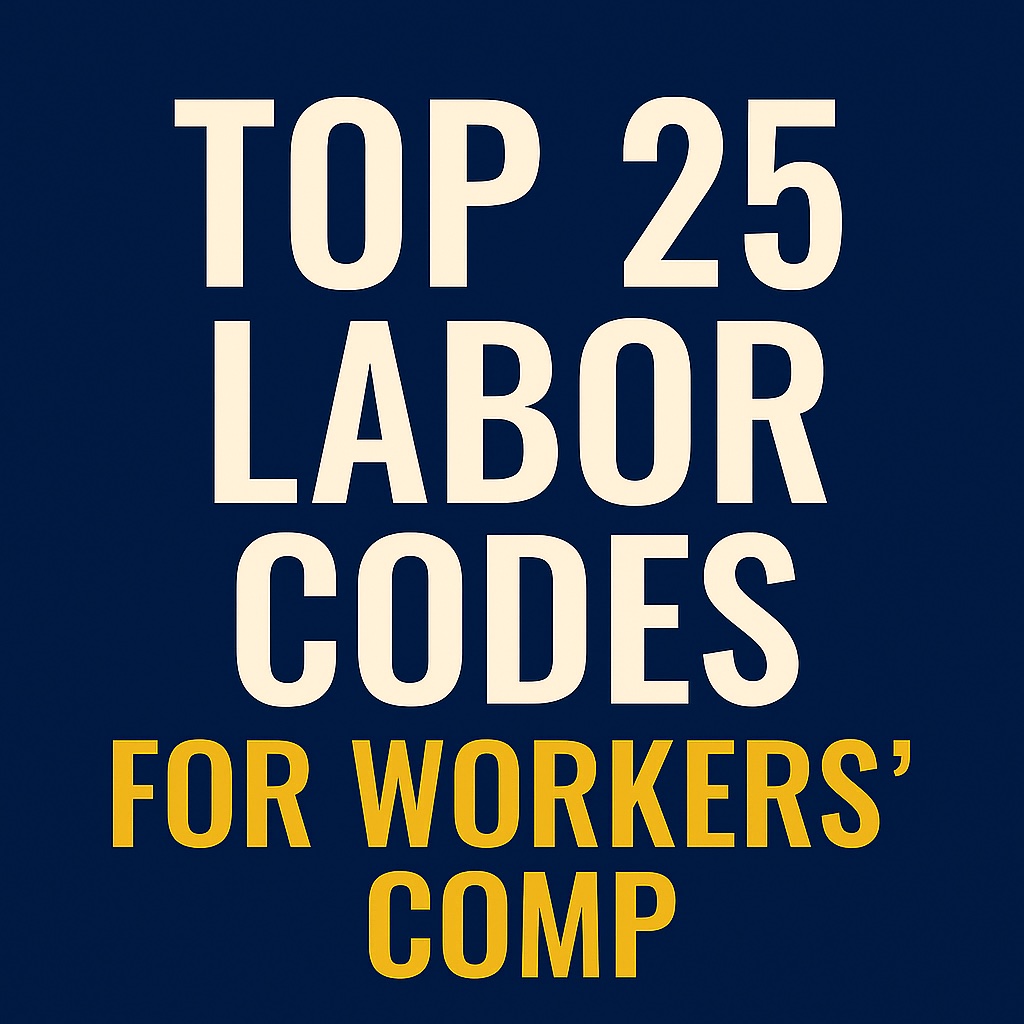
1. Labor Code §3202 – Liberal Construction
Requires that workers’ comp laws be interpreted liberally in favor of the injured worker. This is the foundation of all injured worker protections in California.
2. Labor Code §3208.1 – Definitions of Injury
Defines specific injuries (single incident) and cumulative trauma injuries (develop over time due to repetitive stress or exposure).
3. Labor Code §3208.3 – Psychiatric Injuries
Outlines the requirements for mental health claims, including the 51% causation rule and exclusions for “good faith personnel actions.”
4. Labor Code §3600 – Conditions for Compensation
Establishes the basic requirements for a work injury to be compensable (e.g., occurred during the course and scope of employment).
5. Labor Code §3602 – Exclusive Remedy Rule
Says that workers’ comp is usually the exclusive remedy for on-the-job injuries—but with key exceptions (e.g., serious and willful misconduct or third-party liability).
6. Labor Code §3700 – Employer’s Duty to Provide Coverage
Requires all California employers to carry workers’ compensation insurance or be certified to self-insure.
7. Labor Code §4060 – Medical Evaluations for Denied Claims
Applies when your claim is denied entirely. Triggers your right to request a Qualified Medical Evaluator (QME) or Agreed Medical Evaluator (AME).
8. Labor Code §4061 – Permanent Disability Disputes
Governs disputes about whether your condition has reached Maximum Medical Improvement (MMI) and how much permanent disability you have.
9. Labor Code §4062 – Objections to Medical Determinations
Sets out the procedures when disputing medical decisions, like denied surgeries or low PD ratings.
10. Labor Code §4062.2 – Panel QME Process (Represented Workers)
Explains how panel QMEs are selected when you’re represented by an attorney—important for preserving your legal rights during evaluations.
11. Labor Code §4062.1 – Panel QME Process (Unrepresented Workers)
Describes the QME process if you don’t have a lawyer. The rules are different and often more restrictive.
12. Labor Code §4600 – Right to Medical Treatment
Guarantees your right to reasonable and necessary medical care to cure or relieve the effects of your work injury.
13. Labor Code §4610 – Utilization Review (UR)
Defines the process insurers use to approve or deny treatment requests. UR decisions must follow the Medical Treatment Utilization Schedule (MTUS).
14. Labor Code §4610.5 – Independent Medical Review (IMR)
Allows you to appeal a UR denial by requesting an IMR—an external, supposedly neutral review of your treatment dispute.
15. Labor Code §4650 – Timing of Temporary Disability Payments
Requires prompt payment of Temporary Disability (TD) benefits. Employers who delay can face automatic penalties.
16. Labor Code §4658 – Permanent Disability Ratings and Payments
Explains how Permanent Disability (PD) is calculated and paid. References the Permanent Disability Rating Schedule (PDRS).
17. Labor Code §4659 – 100% Permanent Disability (Life Pension)
Provides lifetime disability payments for workers deemed totally and permanently disabled (e.g., amputations, paralysis, blindness).
18. Labor Code §4663 – Apportionment of Permanent Disability
Requires doctors to divide PD between what’s caused by work and what’s not. Insurers use this to reduce your rating—often unfairly.
19. Labor Code §5814 – Penalties for Unreasonable Delay or Denial
Allows injured workers to seek penalties of up to 25% of the total value of benefits unreasonably delayed or denied by the insurer.
20. Labor Code §§5900–5911 – Petitions for Reconsideration
These sections govern how to appeal a WCAB judge’s decision. If you disagree with a ruling, this is your formal route to challenge it.
21. Labor Code §139.21 – Medical Provider Network (MPN) Requirements
Establishes the rules for Medical Provider Networks (MPNs), which insurers use to control treatment. This section outlines standards for access, continuity of care, and second opinions.
22. Labor Code §4553 – Serious and Willful Misconduct
Allows injured workers to seek a 50% increase in compensation if the injury was caused by the employer’s serious and willful misconduct. A powerful tool in cases involving unsafe working conditions or blatant employer negligence.
23. Labor Code §132a – Retaliation for Filing a Claim
Protects workers from discrimination or retaliation for filing a workers’ comp claim. Provides additional compensation and penalties for unlawful termination or discipline related to the injury.
24. Labor Code §4603.2 – Medical Billing and Payment Timelines
Regulates how and when insurers must pay medical providers. Ensures timely payments and sets penalties for unreasonable delays in reimbursement.
25. Labor Code §4616 – Creation and Use of Medical Provider Networks
Outlines how insurers establish MPNs, including notice requirements and employee rights to treat outside the MPN in certain situations. Closely tied to §139.21 but more focused on employee rights and usage.

Final Thoughts
California’s workers’ compensation system is built on hundreds of legal code sections, but these 25 stand out as the core protections for injured workers. Knowing your rights is the first step—enforcing them takes experience, strategy, and advocacy.
At Employees First Labor Law, we don’t just know the labor code—we use it every day to fight insurers, reverse denials, and maximize compensation for our clients.
If your claim has been delayed, denied, or underpaid, contact us for a free case review. Let’s make the law work for you.



